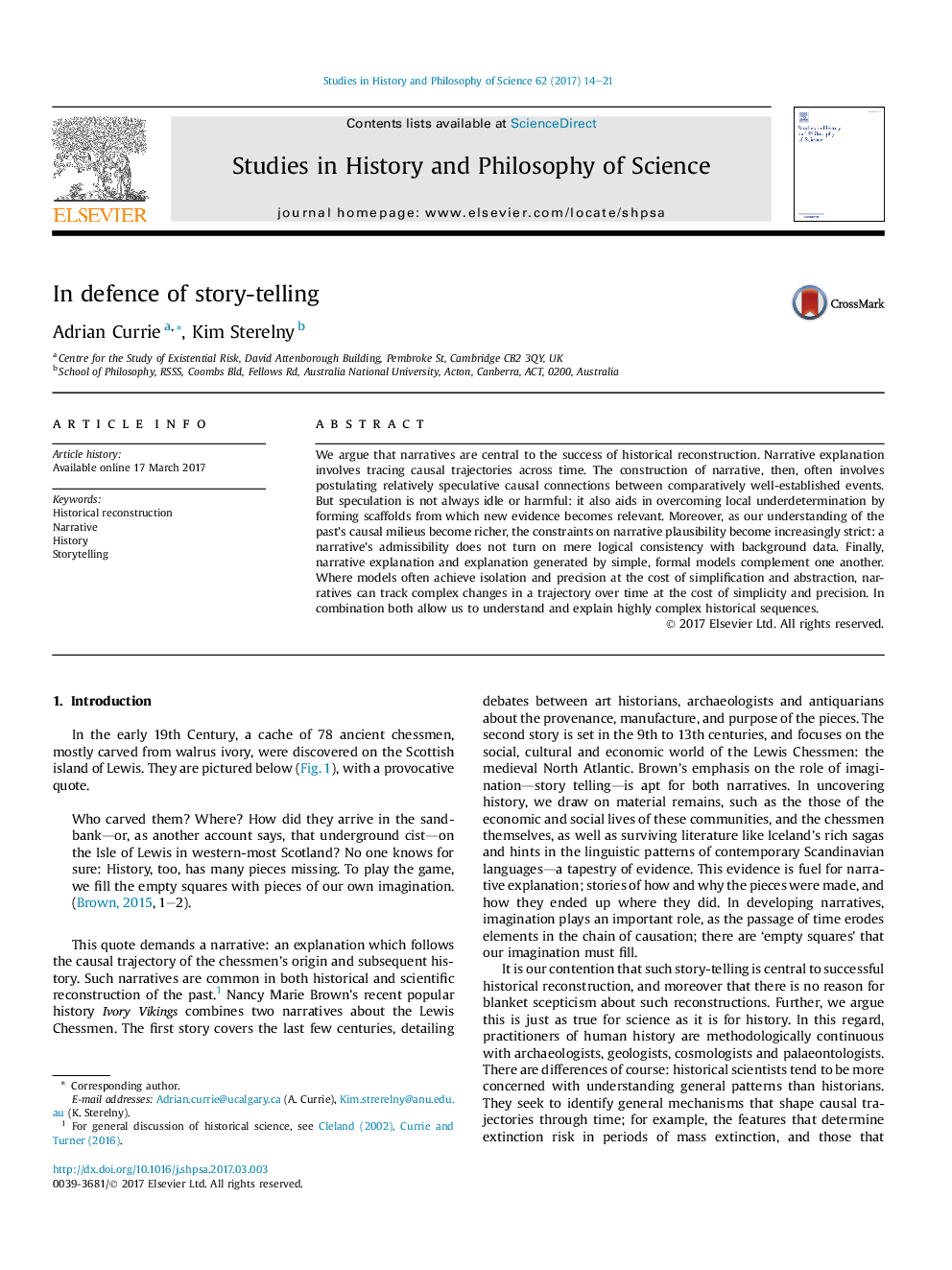| Article ID | Journal | Published Year | Pages | File Type |
|---|---|---|---|---|
| 5130390 | Studies in History and Philosophy of Science Part A | 2017 | 8 Pages |
We argue that narratives are central to the success of historical reconstruction. Narrative explanation involves tracing causal trajectories across time. The construction of narrative, then, often involves postulating relatively speculative causal connections between comparatively well-established events. But speculation is not always idle or harmful: it also aids in overcoming local underdetermination by forming scaffolds from which new evidence becomes relevant. Moreover, as our understanding of the past's causal milieus become richer, the constraints on narrative plausibility become increasingly strict: a narrative's admissibility does not turn on mere logical consistency with background data. Finally, narrative explanation and explanation generated by simple, formal models complement one another. Where models often achieve isolation and precision at the cost of simplification and abstraction, narratives can track complex changes in a trajectory over time at the cost of simplicity and precision. In combination both allow us to understand and explain highly complex historical sequences.
